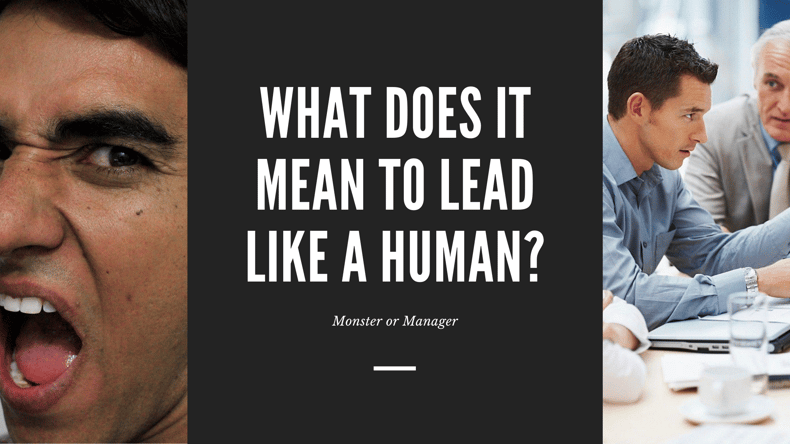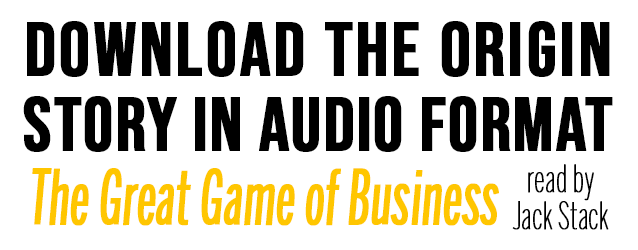
Manager or Monster?
Across Emplify’s entire data set, the most common challenges we see are companies promoting top-performing employees into management and then leaving them to their own devices.
Unfortunately, when they become managers, they lack support from the business to transform them into truly inspiring leaders. Instead, they fall back on antiquated management styles that sow disengagement among the people they manage. These old styles of management are directly opposed to what I believe it means to lead, and were the driving force behind me writing my new book, Lead Like a Human.
So, what does human-centric leadership look like? It’s an authentic, honest, and vulnerable style that treats each individual as a person. It establishes open communication between managers and employees due to a shared sense of trust. What I’ve found throughout my own career is that this relationship between manager and employee has profound impacts on the overall business. Good managers can help lead your employees to bringing their best selves to their work, but bad managers will leave your people passionless and hamstring your entire business.
Lacking Leadership
In order to illustrate the damage the powerful hold a manager has on your organization and its people, I’d like to share with you two stories about two different jobs I’ve had during my career. While I held these jobs back to back, they were led by two completely different managers with their own approaches to leadership. The first job, while at first seemed great, ended up being a nightmare and it was entirely due to my manager who represented an old management style.
There was just nothing to do! Each day, I’d come in at 9:00 a.m. and do about ninety minutes of work. After that, I’d find ways to waste time until I could clock out. My job felt completely meaningless, and what’s worse my manager didn’t seem to care that I was bored. The only thing she did care about was how many hours were on my timesheet at the end of the week. If I showed up to the office five minutes before her, I’d be praised all day for my dedication to my position. If I walked in a couple of minutes late, however, I was chastised for my poor performance.
During my time working with her, I discovered that she was completely out of touch with who I was and what I needed to thrive. In her mind, she thought I was lucky to have the job I had. These kinds of managers think their employees work solely for them, and they should do it with a smile. Unfortunately, this creates passionless teams who drag themselves into work every day to do the bare minimum. These kinds of dead-end jobs aren’t only torture for your people—they’re hampering your business’s overall productivity
A Human-Centric Approach
After about a year (or, as my manager saw it, 2,080 working hours), I realized that I needed a new job. After submitting my resume to countless open positions, I was offered a sales job at SpinWeb, a web-development company. While I had never done sales, I was immediately attracted to the culture of the company and the team. They all seemed to be working incredibly hard and yet were still very, very happy at their jobs. From day one, I realized this was a direct result of the leadership of the CEO at SpinWeb—Michael Reynolds.
On my first day, Michael pulled me aside and told me something that has become essential to my own style of leadership. In the corner of this small office, he said to me, “I don’t care when you work; I don’t care how you work; I don’t even care where you work. What I’m curious about is, if you really set your mind to unlocking this business, what are you capable of doing?” I’d never had a manager speak so honestly to me. I could feel he was being his authentic self, and, in his behavior, I found the permission to let down my own walls. So, I put my whole self in.
At SpinWeb, I was doing twice (if not three times) the work I did in my previous position. But in no way did I feel overworked or burned out. If anything, I felt the opposite—impassioned and invigorated. Michael let me know that my contributions mattered to the overall business and that I had a personal stake in the success of the company. Eventually, I’d leave SpinWeb, but his lessons would stay with me. It’s thanks to his leadership that I am where I am today.
What Michael did, and what I strive to do, is to take a human-centric approach to leadership. My experience with him, and with countless others, shaped my own approach to leadership. In Lead Like a Human, I’ve taken those lessons learned and put them down on paper in the hopes that you will develop your own style that considers the humanity of your employees. Good leaders in business create good culture and good culture promises great results—both for your people and your organization.
Would you like to see Adam Weber speak at the Great Game of Business® Conference?
There are 2 opportunities:
- The Recording of Leadership for a Modern Workforce // with Adam Weber (Emplify), Verne Harnish (Scaling Up), and Rich Armstrong (The Great Game of Business)
Lead Like a Human: Building Engaged Teams // 1:15 to 2:00 on the MAIN STAGE of the 28th Annual Great Game of Business Conference, September 11th.
.png)








.png)




-5.png)

.png)
